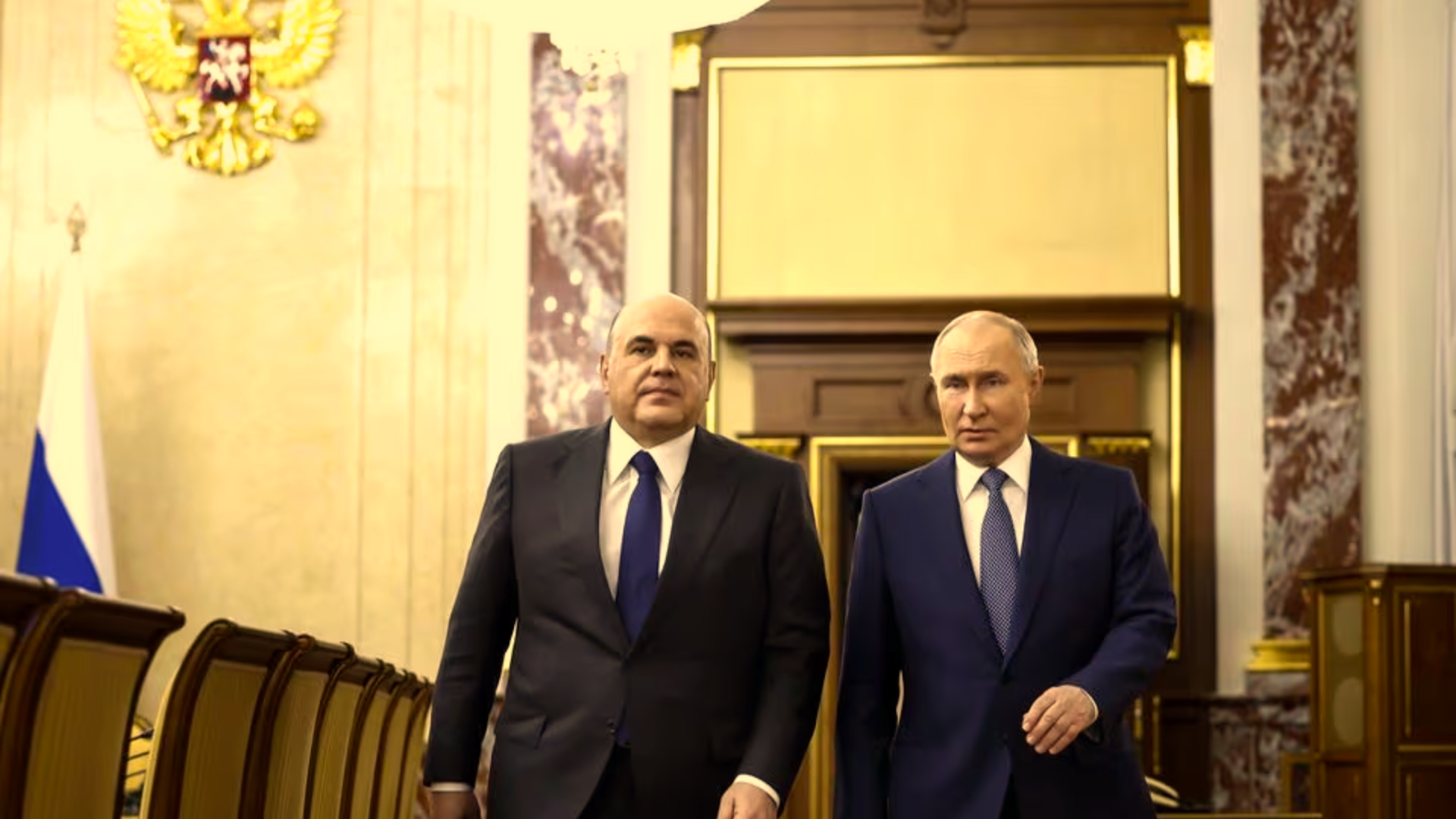

Mikhail Mishustin
Russian President Vladimir Putin has reappointed Mikhail Mishustin as the country’s prime minister, following Mishustin’s previous four-year tenure in the role. Mishustin, known for his low-key demeanor and focus on technocratic governance, submitted his Cabinet’s resignation earlier this week in line with Russian law, coinciding with Putin’s inauguration for his fifth presidential term.
The decision to reappoint Mishustin was widely anticipated by political observers, who highlighted Putin’s appreciation for Mishustin’s skills and his avoidance of political grandstanding. As the former head of Russia’s tax service, Mishustin is credited with maintaining a stable economic performance despite the challenges posed by Western sanctions.
The confirmation of Mishustin’s reappointment now moves to the State Duma, Russia’s lower house of parliament, where it is expected to be a formality given the chamber’s Kremlin-controlled composition. Under constitutional changes implemented in 2020, the Duma approves the prime minister’s candidacy, who then nominates Cabinet members.
While most Cabinet members are expected to retain their positions, the fate of Defense Minister Sergei Shoigu remains uncertain following the recent arrest of his top associate, Timur Ivanov, on bribery charges. Ivanov’s arrest has been viewed as a possible attack on Shoigu, despite his close ties with Putin.
READ MORE : Lok Sabha Elections 2024 : Punjab Government Assisted Amritpal Singh In Submitting Nomination
Shoigu, who faced criticism for Russian military setbacks in the early stages of the conflict in Ukraine, had previously weathered challenges to his position, including from mercenary chief Yevgeny Prigozhin. Prigozhin’s brief attempted march on Moscow last June, demanding Shoigu’s removal, ended with his death in a suspicious air crash.
However, Ivanov’s arrest has once again exposed Shoigu’s vulnerability to political infighting within the Kremlin. While Shoigu has managed to shore up his position in the past, Ivanov’s detention raises questions about his future within the government.
Overall, Mishustin’s reappointment underscores Putin’s preference for continuity and stability in governance, particularly amid ongoing geopolitical challenges and internal political dynamics. As Mishustin begins his second term as prime minister, all eyes will be on the composition of his new Cabinet and any potential shifts in key ministerial positions.
Russian authorities have banned the Elton John Aids Foundation (EJAF), citing its support for LGBTQ+…
All India Majlis-e-Ittehadul Muslimeen (AIMIM) leader Waris Pathan has strongly defended party chief Asaduddin Owaisi’s…
Bulgarian Prime Minister Rosen Zhelyazkov's government survived a no-confidence vote on Thursday, following a challenge…
Russia described the US warning of military action against Iran as "unacceptable" and said it…
Delhi State Haj Committee Chairperson Kausar Jahan has hailed the passage of the Waqf Amendment…
In one of the largest mass displacements of the war, hundreds of thousands of Gazans…